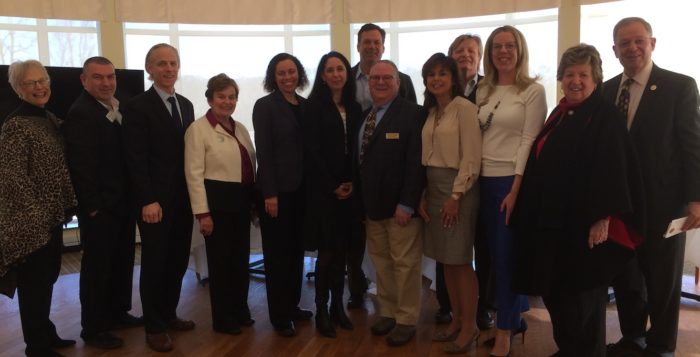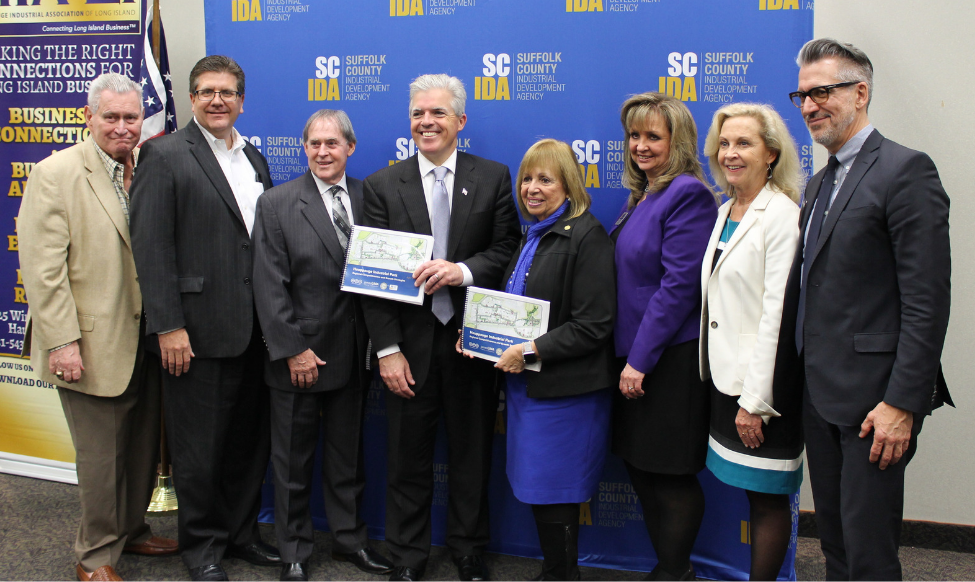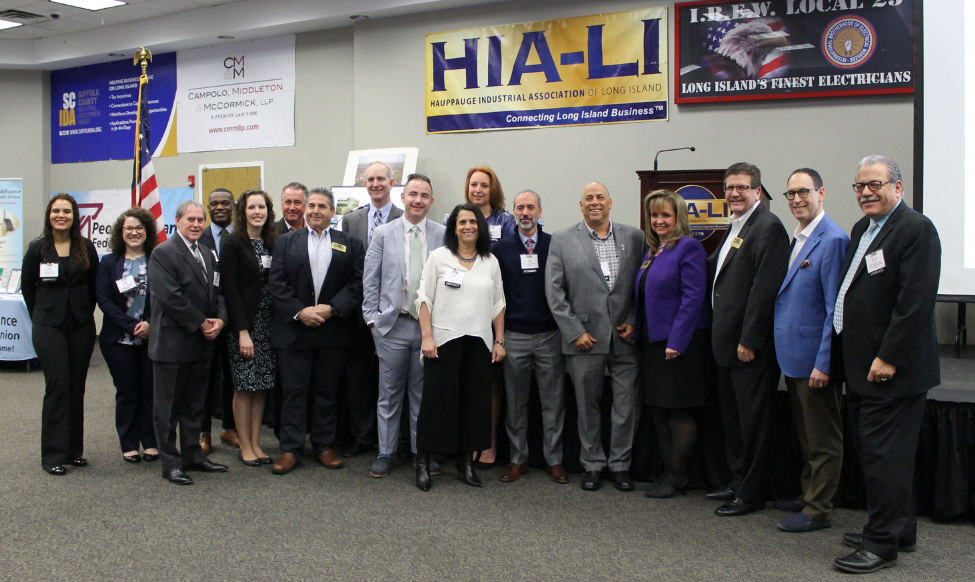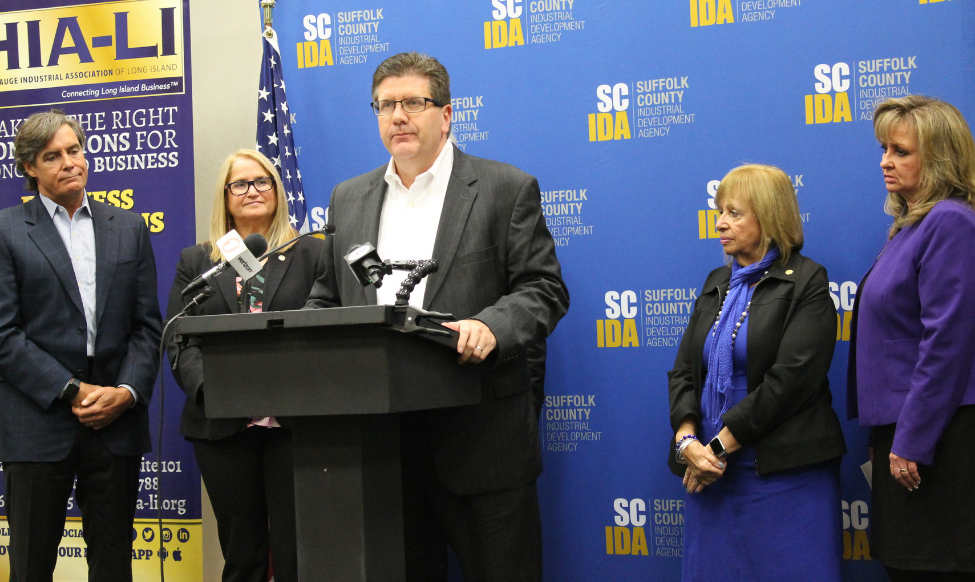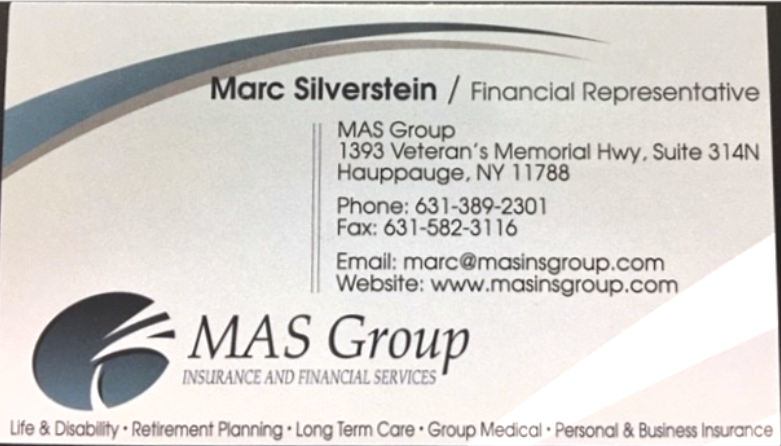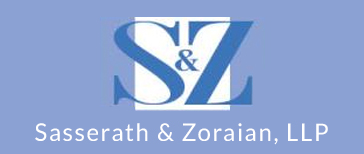Positioning Hauppauge Industrial Park for the future
By Adina Genn
A new analysis shows that the Hauppauge Industrial Park could position the region for economic growth, officials said.
Released Wednesday at the IBEW offices in Hauppauge, the 160-plus page report was commissioned by the Suffolk County Industrial Development Agency and written, produced and designed by James Lima Planning + Development and the Regional Plan Association.
The report identifies strategies to further advance revitalization opportunities by supporting and clustering together industries at the park. It also offers competitor analysis to define additional ways to collaborate, and lessons learned from economic hubs across the country.
In positioning for the future, the park will be renamed as The Long Island Innovation Park at Hauppauge. The new moniker reflects a finding in the report that the park can “further capture economic opportunities of the region and maximize its impact to become a key player in Long Island’s overall economic development.”
The park is home to 1,300 companies that employ more than 55,000 people and its $13 billion of annual output accounts for 8 percent of Long Island’s gross domestic product, according to a press release. And 58 percent of the companies are in “tradable sectors,” or exports of goods from the region.
One of the report’s recommendations includes fostering industry clusters, and the key ones in the region include aerospace vehicles and defense, biopharmaceuticals, business services, construction products and services, distribution and electronic commerce, education and research activities, financial services, food processing and manufacturing and information technology and analytical instruments.
Collectively, the park would benefit if companies within it saw each other as collaborators rather than competitors: “All parties on the Island should be uniting around common goals for workforce training, incubators, co-work space, high-tech shared equipment and housing policies,” according to the report.
“This comprehensive roadmap provides our region with the building blocks needed to strengthen, expand and attract key industry clusters that will push our innovative economy to the next level,” Suffolk County Executive Steve Bellone said in a statement.
Five strategies within the report include facilitating business growth, attracting and retaining skilled workers, strengthening training and workforce development, promoting innovation and technology transfer, and connecting business, governments and institutions.
Noting that it’s the largest business park in the northeast, Hauppauge Industrial Association of Long Island President and CEO Terri Alessi-Miceli said that the park is “equipped to fulfill a growth scenario that will redouble its contributions to our regional economy.”
Both the Suffolk County Industrial Development Agency and HIA plan to support partnerships with institutions, business and nonprofits to foster growth and learn from one another.
Smithtown Supervisor Ed Wehrheim saw many ways for organizations to partner together.
“Imagine neighboring businesses working together to capitalize on mutual growth, a think tank of business professionals working to help innovate local companies to the next level, the private sector working with public institutions to plan for alternative energy or create walkable communities for the next generation of great innovators to live and play,” he said. “The possibilities are truly endless.”
A rendering showed the potential for housing, which could help attract workforce.
“While the Hauppauge Industrial Park already plays an essential role in powering the Long Island economy, it still has tremendous untapped value,” Joe Campolo, the board chair of HIA-LI and managing partner at Campolo, Middleton & McCormick in Ronkonkoma said in a statement. “After analyzing a full spectrum of strategic options, we now have a viable, clear-eyed, long-term plan that will maximize the park’s value for decades to come.”
Theresa Ward, chair of the Suffolk County IDA board of directors, said officials are “extremely proud of this report, which takes a deep dive into the challenges and opportunities inherent in Long Island’s key economic generator.”
“The Hauppauge Industrial Park has been a significant hotbed for economic development and growth and this reimagining of the Park gets everyone involved in economic development in this region excited because the potential is so real and obtainable,” she added.
Read more here.
